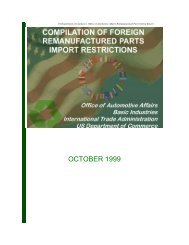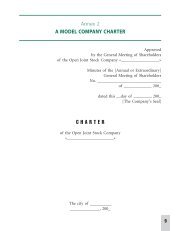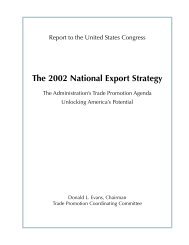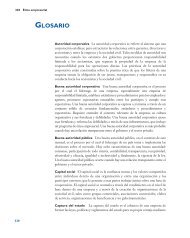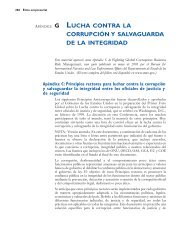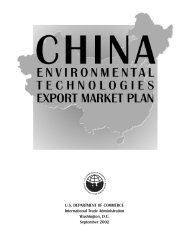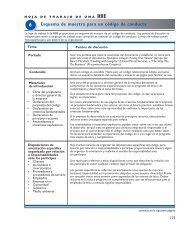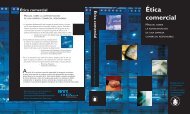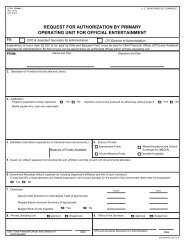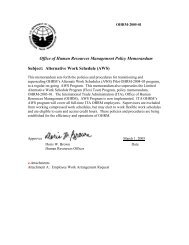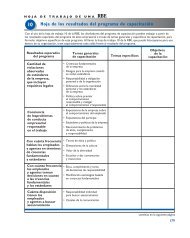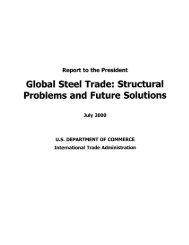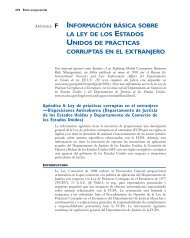Vietnam Environmental Technologies Export Market Plan
Vietnam Environmental Technologies Export Market Plan
Vietnam Environmental Technologies Export Market Plan
You also want an ePaper? Increase the reach of your titles
YUMPU automatically turns print PDFs into web optimized ePapers that Google loves.
Distribution of environment-related equipment—such<br />
as pumps, filters, valves, motors, etc.—tends to be<br />
managed through local companies, both state-owned and<br />
private. Again, vendors should confirm that the agent<br />
either has an import license or a relationship with a<br />
licensed trading company.<br />
Common distribution channels for vendors include:<br />
• Local companies that import products for their own<br />
use. These may be environmental service companies<br />
which sell pollution prevention or treatment equipment<br />
but that need to import parts.<br />
• Manufacturers that import under consignment.<br />
• Import-export companies that import on behalf of other<br />
agents or to serve as an agent themselves.<br />
Local companies provide marketing and promotion<br />
services and can be more effective in navigating<br />
distribution channels than would a foreign company<br />
establishing a new presence in the market. They can be<br />
invaluable for their contacts and relationships with<br />
equipment buyers, such as provincial, municipal, and<br />
district government officials.<br />
It is important to provide local agents/distributors with<br />
adequate training so that they are able to provide aftersales<br />
services to buyers.<br />
foreign-exchange transactions. While some foreigninvested<br />
firms may have convertibility rights, it does not<br />
mean that the needed foreign currency will be available,<br />
as the market may fluctuate wildly. Convertibility rights<br />
are generally issued to import substitution manufacturers<br />
and other “important” industries.<br />
Letters of credit are the most common method of<br />
payment for importing goods. Vietcombank, <strong>Vietnam</strong>’s<br />
largest state-owned bank, is the most active bank in<br />
issuing letters of credit. However, it is often reluctant to<br />
allow confirmation of its letters of credit by overseas<br />
banks. Also, <strong>Vietnam</strong>ese banks do not always accept that<br />
a letter of credit constitutes a commitment on their part<br />
to meet obligations, and some banks have walked away,<br />
claiming that the importer is unable or unwilling to pay.<br />
It is advisable for foreign exporters to open a letter of<br />
credit with a foreign bank branch in <strong>Vietnam</strong>. There are<br />
more than 20 foreign banks with branches in either Hanoi<br />
or Ho Chi Minh City. It is fairly standard for foreign<br />
companies that do not have a legal presence in <strong>Vietnam</strong>,<br />
such as a representative office, to import and sell goods<br />
through a state-owned enterprise that has import licenses<br />
and convertibility rights.<br />
Consignment sales are not recommended unless the<br />
distributor’s performance and reliability can be verified.<br />
Once a proven track record is established, distributors<br />
often ask for payment terms of 30 to 180 days.<br />
14.5—Payment<br />
The <strong>Vietnam</strong>ese dong is not a convertible currency.<br />
Moreover the state bank imposes strict controls on<br />
52 U.S. Department of Commerce, International Trade Administration



